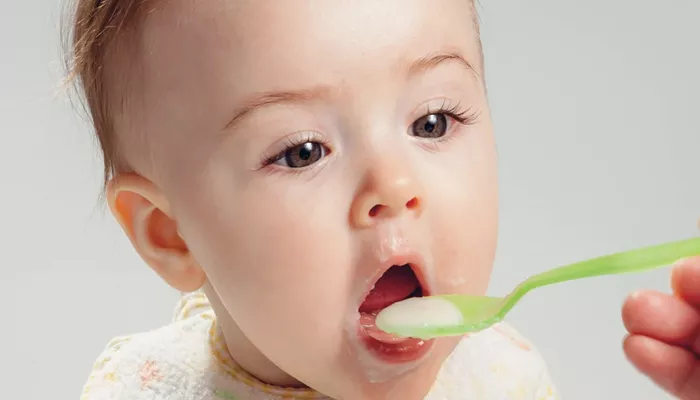Jennylyn M. Barrios, a make-up artist in Manila, struggles to balance her busy work schedule and caring for her 10-month-old son, Uno. With little time to prepare homemade meals for him, she relies on convenience foods, such as Cerelac, an instant baby food product.
“I need to work double time if I make something from scratch,” Jennylyn explains. “But with Cerelac, I just add hot water. It’s easy, affordable, and available — perfect for busy mums like me.”
Jennylyn’s story is shared by many parents across the Philippines. As more mothers turn to commercially prepared baby foods, the market for instant cereals, porridges, pureed foods, and snacks has rapidly expanded. Sales in Southeast Asia have doubled over the past five years.
Cerelac, a popular instant porridge brand made by Nestlé, is a favorite among parents. Its convenience and affordability have made it a household name, with many parents on social media praising its nutritional value, especially in a time when the cost of living is rising.
However, while Cerelac is widely known for its added micronutrients, some versions of the product sold in Southeast Asia contain hidden sugars. This has raised concerns among health professionals, especially as more Filipino families shift from traditional home-cooked meals to convenience foods.
Nestlé asserts that the added sugar content in Cerelac is within international standards. Arlene Tan-Bantoto, the company’s Nutrition Executive, emphasized that Nestlé adheres to guidelines set by the Codex Commission, a group established by the World Health Organization (WHO) and the Food and Agriculture Organization (FAO), to ensure the safety of food products.
“The added sugars in our products are well below the thresholds prescribed by international guidelines,” Tan-Bantoto said.
Yet, the WHO has criticized these existing standards as insufficient, recommending stricter regulations, particularly when it comes to limiting sugar and salt in foods for children under three years old. A recent UNICEF study found that nearly half of baby foods in Southeast Asia, including Cerelac, contain added sugars or sweeteners.
Tan-Bantoto explained that sugar is used in Cerelac to mask the taste of essential nutrients like iron and DHA, which can have unpleasant flavors. She pointed out that micronutrient deficiencies are widespread in the Philippines, and Cerelac’s added sugars help to make the product more palatable for young children.
“Micronutrient deficiency is a significant issue here,” Tan-Bantoto said. “Ninety-seven percent of babies do not meet their daily nutrient requirements, and 40% suffer from iron deficiency anemia, which has lifelong consequences, including poor brain development and weakened immunity.”
At clinics across Manila, health professionals regularly witness the impacts of malnutrition in children, but changing diets are creating new challenges. Some children are underweight, while others are overweight or even obese. Experts suggest that early exposure to sweet foods may influence children’s taste preferences and contribute to the rising obesity rates.
Dr. Mianne Silvestre, a public health expert, voiced concern over the amount of sugar in products like Cerelac. The most popular flavor of Cerelac in the Philippines contains 17.5 grams of sugar per serving, more than four teaspoons. While some of this sugar is naturally occurring, added sugars contribute significantly to the overall amount.
“Feeding babies this much sugar at such a young age is concerning,” Dr. Silvestre said. “Malnutrition isn’t just about being undernourished; overnourishment, leading to obesity, is also a major issue.”
Alice Nkoroi, a UNICEF nutrition officer in the Philippines, called for stronger government regulation to protect parents from misleading claims. She pointed out that, in many European countries, there are clear guidelines that regulate the content and labeling of baby food, making it easier for consumers to make informed choices.
She also raised concerns about the role of social media in promoting products like Cerelac. Influencers, such as Chiara Maganalles, who has 1.6 million followers, have been paid to promote baby food products, presenting them as expert recommendations. Critics argue that these paid promotions may mislead parents into believing they are receiving trusted advice.
Maganalles, also known as “Mommy Diaries PH,” has been an advocate for Cerelac, often sharing her positive experience with the product. “It’s convenient, suits our budget, and is fortified with iron,” she said in a recent YouTube video for Nestlé’s educational platform.
However, Nestlé insists that Cerelac should not be fed to babies multiple times a day. Tan-Bantoto clarified that the product is intended as a complementary food and should be given alongside a balanced diet, including fruits, vegetables, and meat.
Meanwhile, calls for stronger regulation are gaining momentum. Senator Imee Marcos, sister of the current Philippine president, has sponsored a bill aimed at banning added sugars in baby foods. If passed, the bill would impose fines and prison sentences on manufacturers who fail to comply.
“I’m hopeful that this bill will pass,” Marcos said. “But the food lobbies, especially the multinational companies, are powerful. Despite this, I’m determined to see it through.”
In response to growing concerns, Nestlé has pledged to reduce added sugar in its baby food products. The company plans to introduce a sugar-free version of Cerelac and aims to completely phase out added sugars in the next two to three years.
Recent research from the University of Southern California has highlighted the importance of limiting sugar intake during the first 1,000 days of a child’s life. Studies show that reducing sugar during this period can significantly lower the risk of developing health issues like type 2 diabetes and high blood pressure later in life.
Experts agree that the early years are crucial for shaping a child’s long-term health. As the debate over added sugars in baby food continues, many are calling for stronger regulations to ensure that parents have the information and support they need to make the best choices for their children’s health.
Related Topics:


